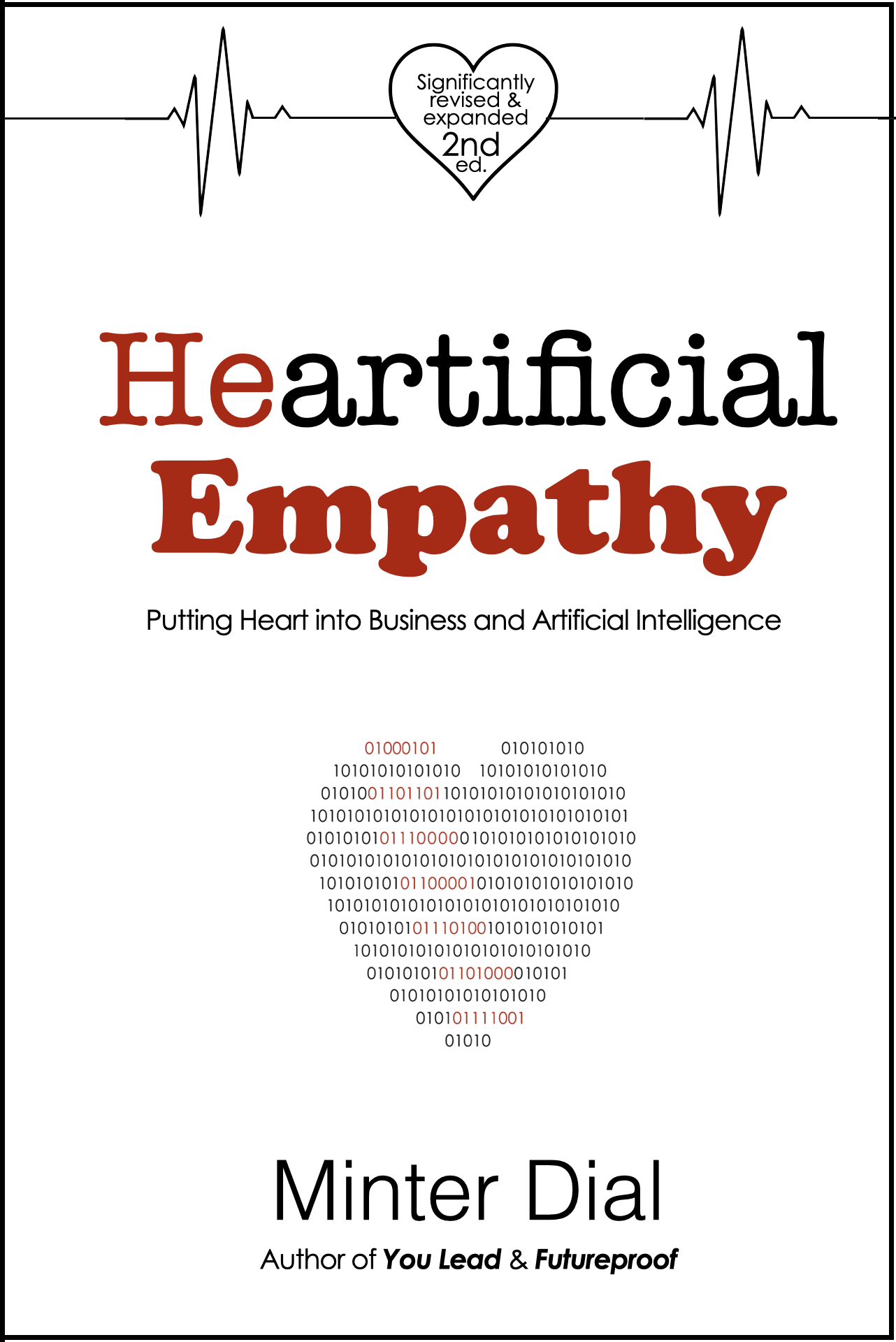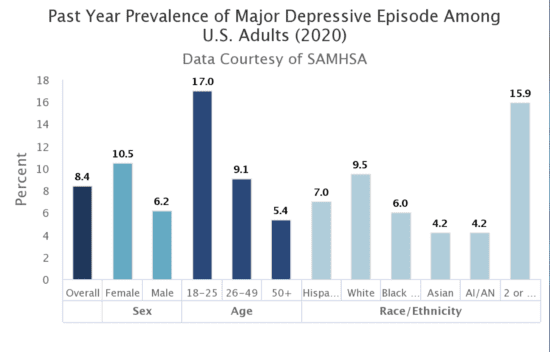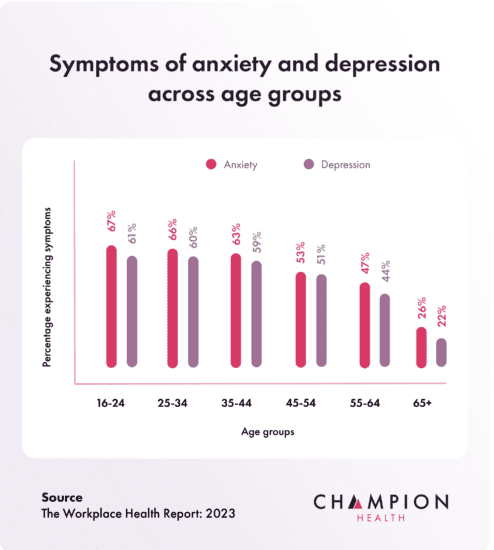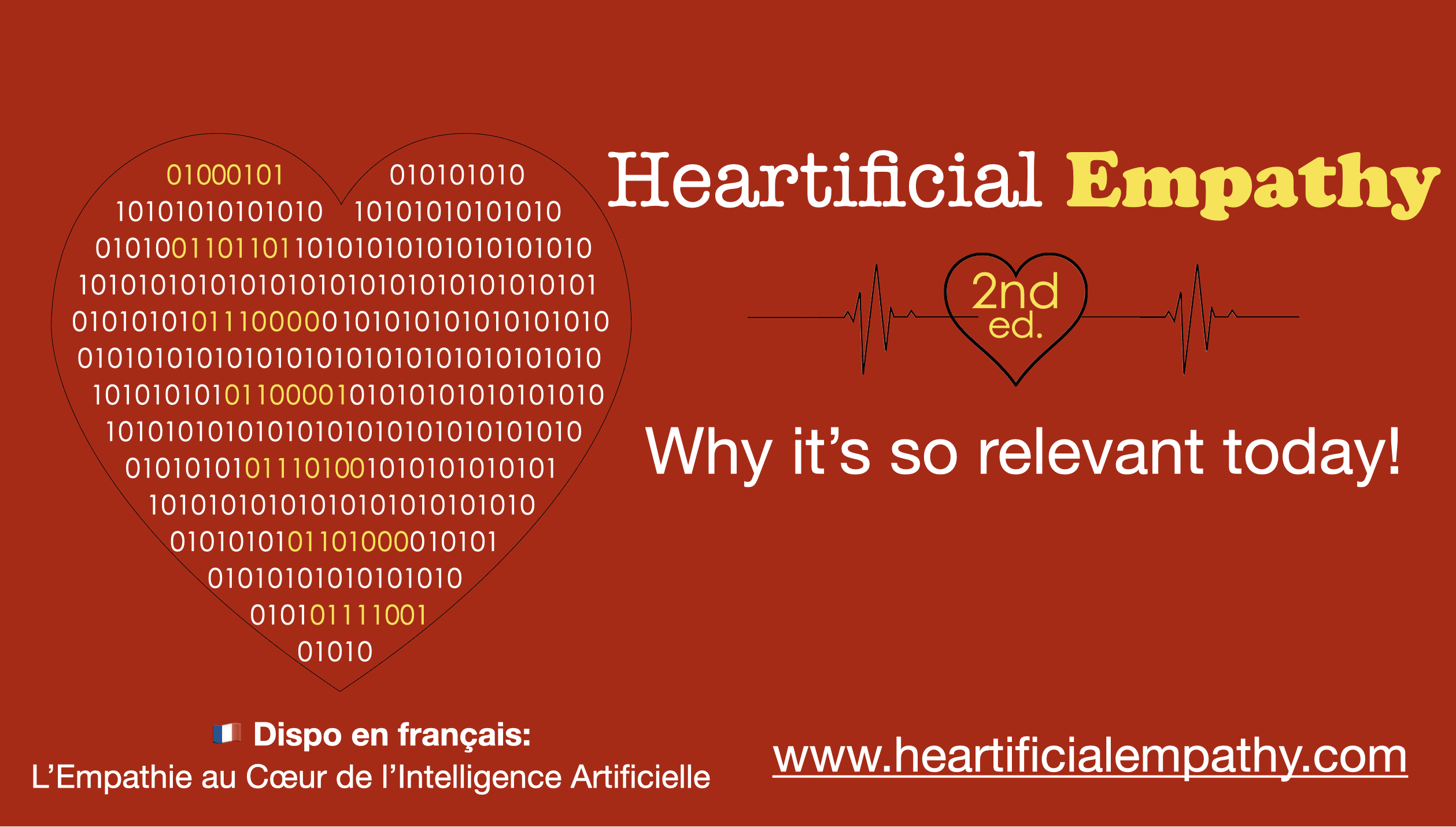Announcing the release of Heartificial Empathy, Putting Heart into Business and Artificial Intelligence
 The second edition of Heartificial Empathy, that was first published in 2018, is about 50% longer than the first edition and roughly 70% modified. This revision was prompted by three important factors. These are:
The second edition of Heartificial Empathy, that was first published in 2018, is about 50% longer than the first edition and roughly 70% modified. This revision was prompted by three important factors. These are:
- A massive change in context
- The burgeoning mental health crisis
- A step-change in artificial intelligence
Perhaps as a consequence of these factors, what’s also true is that there has been an avalanche of new books specifically on the topic of empathy. I counted over 300 new books in the past three years. To say that empathy has become a trend, if not trendy, might now be appropriate. There’s also been a lot of new research, specifically looking at the role and state of empathy in society and the workplace. The need for empathy seems ever clearer, yet there are many factors that will hamper the desire and ability to be more empathic. I will now develop the three factors separately.
1/ A massive change in context
Over the intervening five years since the first edition, much has happened, headlined by two important events. The first was the global pandemic that brought to light a slew of issues about our health, our health care systems and supply chains. It also metamorphosed the workplace. Suddenly, once intransigent leaders acquiesced to the possibility of remote work. This meant that the home and one’s personal life was brought into the workplace. Whether it was the kid doing cartwheels in the background or the cat playing with your digital mouse, everyone’s home context, heretofore hidden, was now on display. For many sensible reasons, colleagues were exchanging personal anecdotes and stories at the start of their online work meetings. Then, in the post-pandemic situation, workers started returning to the office. But, unlike pre-pandemic, now everyone knew that remote work was possible and, having had a taste of it, a good percentage of employees preferred it to going to the office, while others positively preferred to be out of the home. Business leaders have had to tussle with the option of remote work, creating new policies and sometimes altering remuneration. So-called ‘hybrid work’ is harder to configure because it involves choice and negotiation, as opposed to being an imperative. In order to find the right balance and create a winning culture, it becomes even more important to flex one’s empathic muscle. This is something that I’ve been working on as a board member at the GTA Future of Work.
The second event has been the Russian invasion of Ukraine. While the fighting has been contained within the frontiers of these two countries, there’s no doubt that the proximity to Europe and NATO, has brought the possibility and consequences of war closer to bear in the West, unlike many of the other conflicts that pepper our news (Middle East, Sudan, Ethiopia, Myanmar…) that seem too far removed. Not only has the Ukraine war taxed the allies, it has quickly become a sort of petri dish for the impending China-Taiwan situation. The combination of geo-political tensions, rising energy prices, supply chain disruptions and myriad sanctions is clouding the business environment. As a result, business leaders are having to make stressful decisions in the face of a confusing context; and many of these decisions are going to be tough to execute. The need for an empathic leadership to navigate through the complex outlook will be useful, if not essential. As I underline in the book, being empathic isn’t about being nice; but it can certainly help deliver on difficult decisions.
2/ The burgeoning mental health crisis
The studies and statistics about the rise in mental health disorders have been entirely disconcerting. The chart below from SAMHSA is for the US in 2020, but similar types of statistics exist for many other developed countries. For instance, in France in 2020, 22% of the 18-24 age group declared suffering from depressive symptoms. Overall in France, the numbers were nearly double those reported in 2014. {Source} In the UK, the results are even worse. Champion Health produced data on mental health in the workplace showing that 25% of adults exhibited clinically relevant symptoms of anxiety or depression. {Source}

The data from Champion’s Workplace Health Report 2023 on depression and anxiety across the ages in the UK is markedly higher, leading me to suspect that the definitions are probably different. But, the numbers are truly worrying level. A Deloitte report from 2021 attributes this increase to a range of issues, notably family welfare, financial and job concerns, uncertainty and poor mental health.

Because of the rise in mental health conditions, there’s been a corresponding increase in demand for psychotherapy that has outstripped supply. Studies show in many countries a shortfall in psychotherapists, with many therapists having to stop taking on new patients. In Heartificial Empathy, I explore the state of evolution of therapeutic AI that could, at the very least, help compensate for the lack of human therapists. Whether it’s to provide administrative aid, such as filtering incoming calls and farming out to human therapists all the way up to providing genuine therapeutic counsel at all hours, there are a number of startups plying artificial intelligence with the objective of creating therapeutic solutions. Importantly, I also open up the debate as to why it is that in countries where industrial and medical progress, not to forget financial indicators, are at or near all-time highs, mental health disorders have been rising so dramatically. Clearly, part of the reason is the growing awareness and a broader definition of the disorders (in the Diagnostic and Statistical Manual of Mental Health Disorders, aka the DSM). The double whammy of the pandemic and war has had its impact too. However, I also posit that there’s a wider societal issue at hand, which I describe as the Avatar Trap. Naturally, you’ll find an elaboration in the book.
3/ A step-change in artificial intelligence
The third — and none the lesser — phenomenon has been the manifest change in AI capabilities. The advent of foundational AI with Large Language Models (LLMs) and generative AI capable of producing conversational AI, audio and images, has transformed the landscape. The factors that brought this step change about are two-fold: (a) the access to much larger data sets (i.e.: the whole of the internet), and (b) a convergence of the different specialisms of AI that has allowed for a more talented and complete form of ‘intelligence.’ Specifically, whereas before the specialists were developing AI in siloed areas, such as voice-to-text, vocal patterns, image recognition, eye movement, facial movement, text-to-voice, etc., now the AI is able to use a combination of skills that provide far more powerful and effective results. The other piece that has brought about a step-change has been the phenomenal marketing job by Open AI and their Chat GPT, which found its way into 100 million users’ hands in just 60 days. The public awareness has doped an already impressive AI arms race. As a result, we can expect to see quantum leaps in the way AI is being used in business. Given the greater sophistication, it’s only normal that we will see further developments in the anthropomorphisation of AI, to include ever more human characteristics, such as empathy. To wit: a number of exciting projects are seeking to develop therapeutic AI (e.g. Mpathic AI, Hume, Cyrano…). With all the tremendous opportunities for AI comes a higher responsibility. As a society, we must push that each actor in AI — from programmer to company t0 State — will apply themselves with a decent set of ethics. Let’s not kid ourselves: it’s obvious that in bad hands, bad things will happen with these advancements in AI. A moratorium on the development is not what’s needed. It will take a new cocktail that includes an enlightened leadership, agile and supple regulation, nuanced and rigorous media and proper whistle-blower channels.
In sum, the re-write of Heartificial Empathy is both timely and necessary. In a world of increasing tensions, conflicts and uncertainty, managers will have to double down on their empathic skills. The demands and pressure on leadership — in politics as well as in business — will surely not get any easier. Empathy won’t — and shouldn’t be considered to — solve everything. But it can certainly help in myriad ways.
Grab your copy of Heartificial Empathy, 2nd Edition here. It’s also available en français: L’Empathie au Cœur de l’Intelligence Artificielle, Comment insérer de l’empathie dans les affaires et l’intelligence artificielle 🇫🇷.
Terms of Service
Privacy Policy
Contact
Podcast
Books
Home
©Minter Dial 2023











